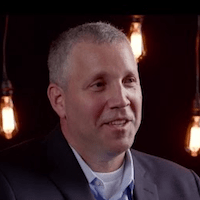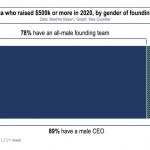Impact Investing Contemplates the Path Ahead: A Q&A with Big Path Capital’s Co-Founders
With Big Path Capital’s Impact Capitalism Summit happening this week (right now, in fact) in Chicago, we caught up with Big Path co-founders Michael Whelchel and Shawn Lesser to discuss the event and impact investing’s evolution. They shared their insights in an email interview, below:
James Militzer: Talk about this year’s Impact Capitalism Summit: What’s new, what’s exciting, and what will be driving the discussion this year?

Shawn Lesser
Shawn Lesser: This is Big Path Capital’s eighth Impact Capitalism Summit. We are excited to see the tremendous growth taking place in impact investing, and what is really amazing about this year’s summit are all the new players involved. The practice has evolved rapidly, and being that this is Big Path’s 10-year anniversary, we have seen impact investing grow from its infancy to where it is now. One topic that people are excited about is our panel on the Trump effect on impact investing and what it means for our industry. We have also added what we call a “practitioner’s track” for people who want to take a deep dive into different impact investing topics such as building an impact portfolio and doing due diligence.
Militzer: What makes Big Path Capital’s approach unique, and what challenges/opportunities emerge from your role as both an investment bank and a placement agent for companies and funds?
Michael Whelchel: Yes, we work both as an investment bank for impact and sustainable companies, and a placement agent for impact and sustainable private equity funds. We have worked with more than 120 impact-focused funds, more than anybody else in the world. Working with both companies and funds gives us a great perspective, and has enabled us to become a trusted partner with both. And the nice thing about Big Path Capital’s business model is that there is a lot of overlap so funds might show us different companies or vice versa.
Lesser: What makes our role unique is that we sit in the nexus of the different streams of the impact investing sector. Because we work with both companies, funds and investors, we get a 365° look at what’s happening in the world of impact investing. We can track the growth worldwide and we have a great deal of market intelligence. Many of the bigger players come to us for a feel of the space.
Militzer: There seems to be a bit of a backlash brewing against the impact investing sector’s efforts to appeal to larger mainstream investors by promising market-rate returns. A recent Oxfam report, for instance, argues that “the sector risks being discredited due to rising, unrealistic expectations about financial returns.” Do you think this is a valid concern? Why/why not?

Michael Whelchel
Whelchel: We understand the concerns. We feel that on our side at Big Path, we position ourselves to only work with companies and funds that maximize impact and maximize return. That doesn’t mean that there isn’t space for other types of approaches around impact, but this is our focus and where we have had the most success.
Militzer: Mara Bolis at Oxfam recently wrote “Let’s not pretend that investors seeking a pure market return can tackle the most complex global challenges in high-risk markets. They cannot.” Assuming there’s some relationship between the return potential of an enterprise and its ability to address the most challenging problems/markets, do you have any concerns that an impact investing sector focused on mainstream returns will end up excluding the most impactful businesses?
Lesser: No, we are not concerned about that because we believe they go hand in hand. In order for this space to grow to reach its full potential, there needs to be both mainstream returns and impact. The bottom line is any progress is positive progress and we are moving the needle. Part of our role is bringing a spectrum of ideas around impact to investors and then bringing a spectrum of investors to the companies and funds. We see our position as bringing good opportunities across the spectrum. For example, working with 120 plus funds, we have seen farmland funds that focus on organics and others that focus on topsoil. Some people think the organic focus is more important than the topsoil focus and vice versa. We provide the opportunities; it is up to the investors to focus their investments towards the areas they believe are more impactful.
Militzer: Based on your conversations with investors, what sectors/geographies do you see as the most promising opportunities for impact investors (in terms of financial return, social impact, or both) in the next five years?
Whelchel: Based on our experience, we think the opportunities in impact investing are so wide open and diverse that we can’t pinpoint one specific geography or sector. What we do seeing happening is people are taking the same approach on the due diligence side for impact investing that they do on mainstream investing. We believe that’s a positive for the industry and we are seeing the field becoming more attractive to institutional investors.
Militzer: Conversely, are there any sectors that you see as over-served/over-emphasized by impact investors?
Lesser: One area where we have concern, especially for new impact investors, is the early stages, bottom of the pyramid type of opportunities. For example, organizations just beginning their impact investing practice have a tendency to be so excited about making an impact that their first entry is on the riskier side. They get so excited about the story that they forget about looking at the company in a deeper way. Soft hearts bring soft minds. Those opportunities have great impact value; however, for new investors who are unfamiliar with the space it can be difficult working with, for example, a global start up. Those types of opportunities are more appropriate for investors that have greater due diligence resources. Just like you don’t learn how to swim by being thrown from an Olympic diving board, you shouldn’t enter impact investing focused on the most challenging opportunities.
Militzer: What do you view as the most important developments of the past year in impact investing, and the most important trends that will shape the coming year?
Whelchel: This past year has brought forward exciting new players such as TPG. (Note: Watch an interview from SOCAP16 regarding the TPG announcement). Announcements like UBS committing $5 billion to impact as well as the most recent Ford Foundation commitment of $1 billion to the practice are exciting to see and point to the big organizations beginning to recognize the power of impact investing.
Militzer: As impact investing seems poised to go mainstream, are there any pitfalls you’re concerned about as more money, public attention and media scrutiny flood into the sector, and as investor expectations grow?
Whelchel: As impact investing continues to gain more attention, one of our concerns is non-impact-focused organizations using green washing and good washing as a marketing technique to attract investors looking to use their investments for impact.
James Militzer is senior editor of NextBillion.
Photo credit: nat urazmetova, via Flickr.
- Categories
- Impact Assessment
- Tags
- impact investing



